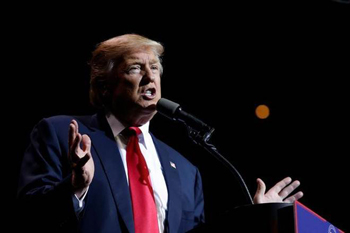Washington, Dec 11: US president-elect Donald Trump has said that one of his first executive orders after assuming office would be to order investigation into all visas abuses, indicating that foreigner workers, including Indians, may face tough scrutiny under his administration.
 While Trump did not identify or name any particular visa abuse, lawmakers for the past few years have expressed concern over abuse of H-1B visas by companies.
While Trump did not identify or name any particular visa abuse, lawmakers for the past few years have expressed concern over abuse of H-1B visas by companies.
During his presidential campaign, Trump had emphasised tightening immigration and criticised companies that ship jobs overseas to countries like India and China.
"One of my first executive orders will ask the Department of Labour to investigate all visa abuses that undermine jobs and wages for the American worker," Trump said at a rally in Michigan on Friday.
"We will fight to protect every American life. During the campaign, I also spent time with American workers laid off and forced to train the foreign workers that were brought in to replace them. That's not going to happen anymore," Trump said.
He was apparently refering to cases like that of Disney World and other American companies wherein people hired on H-1B visas, including Indians, displaced US workers.
"The company that's out there right now, they say you're going to train the people that are going to replace you, and if you don't do it, you're not getting your severance pay, OK, not going to happen to our people anymore," Trump said.
He also vowed to end illegal immigration.
"To protect our country from terrorism and extremism, I will suspend immigration and refugee admissions from regions where they cannot be safely processed or vetted," he said.
"On immigration, we will build a great wall and we will put an end to illegal immigration and stop the drugs from pouring into our country and poisoning our youth and many other people. Got to stop the drugs," he said.
"And we're going to have people come into our country, hundreds of thousands of people. We want them to come in because we're going to have big, beautiful doors in that wall, but they're going to come in legally through a process legally," he said.
Trump said he believes in peace through strength.
"We will, however, get rid of ISIS, I'm sorry. We will get rid of ISIS. ISIS has to go. At the same time, we will ensure our veterans have the best medical care in the world. It's about time," he said.
"And on healthcare, we will repeal and replace Obamacare. We're going to have healthcare that's much less expensive. They will be much better, much stronger. The murder rate our country has experienced is the largest increase in 45 years. You don't hear that. We are going to support the incredible men and women of law enforcement and we are going to bring this crime wave to an end," he said.






Comments
Add new comment